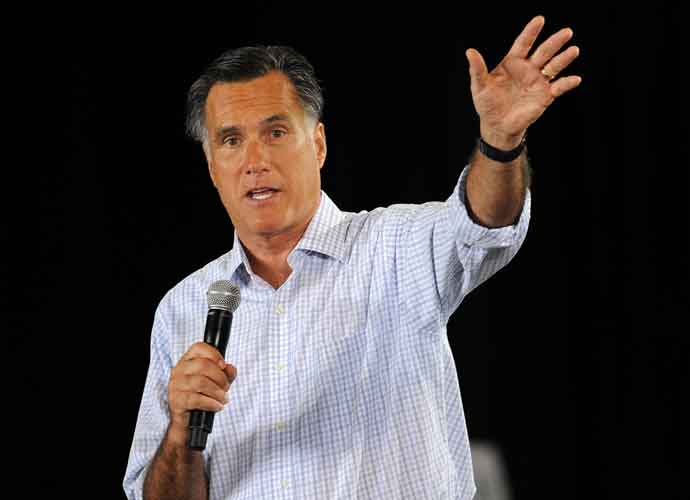Sen. Mitt Romney Says He’ll Support Trump’s Supreme Court Nominee’s Confirmation Before Election, McConnell Has Enough Votes To Approve
Sen. Mitt Romney (R-Utah), a vocal adversary of President Donald Trump, said Tuesday he would support moving to fill the Supreme Court vacancy left open by the passing of Justice Ruth Bader Ginsburg ahead of the presidential election. The move makes it all the more likely the GOP-led Senate will be able to confirm a conservative justice before the election could potentially shift the political balance in Congress.
“The Constitution gives the president the power to nominate and the Senate the authority to provide advice and consent on Supreme Court nominees,” Romney said in a statement. “Accordingly, I intend to follow the Constitution and precedent in considering the president’s nominee. If the nominee reaches the Senate floor, I intend to vote based upon their qualifications.”
Though Romney is often at odds with both Trump and Senate Majority Leader Mitch McConnell (R-Kentucky), such as when he was the only Republican senator in February to vote to convict Trump on the charge of abuse of power — though he voted against the House’s second article of impeachment, obstruction of justice.
However, despite their differences, Romney’s comments affirmed his conservative values.
Subscribe to our free weekly newsletter!
A week of political news in your in-box.
We find the news you need to know, so you don't have to.
“My liberal friends have over many decades gotten very used to the idea of having a liberal court, but that’s not written in the stars,” he said. “I know a lot of people are saying, ‘Gosh, we don’t want that change.’ I understand the energy associated with that perspective. But it’s also appropriate for a nation that is, if you will, center-right to have a court which reflects center-right points of view.”
Democrats have accused McConnell and other GOP politicians of hypocrisy, as they blocked former President Barack Obama‘s Supreme Court pick Merrick Garland in March 2016, citing the election months away.
“If Leader McConnell presses forward, the Republican majority will have stolen two Supreme Court seats four years apart — using completely contradictory rash analysis,” Sen. Chuck Schumer (D-New York) said during remarks on the Senate floor.
With a 53-47 majority, and Vice President Mike Pence‘s ability to break any ties, Democrats would need four Republicans to block the vote. Only Sens. Susan Collins (R-Maine) and Lisa Murkowski (R-Alaska) have thus far indicated they would be willing to postpone any confirmation until after the election.
Democratic Sen. Richard Durbin of Illinois said that his party could attempt to “slow things down” but it would ultimately have no effect on the vote’s outcome.
“I’ve been around here a few years,” Durbin said. “You can slow things down, but you can’t stop them. And there comes a point when we would use whatever tools we have available. But ultimately there will be a vote.”
Get the most-revealing celebrity conversations with the uInterview podcast!








Leave a comment